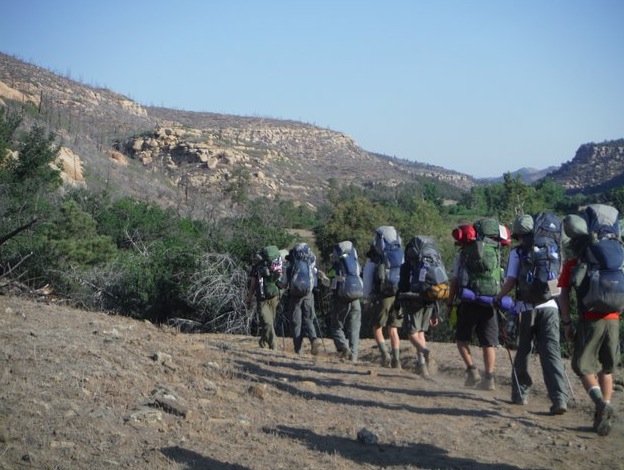Every so often, I'll tease my 16-year-old son about having a crush, just to test the waters, and he'll mutter something along the lines of, "Like any girl would like me over the jocks." It's odd, really, because I see so much in him. He's smart, funny, in shape, good-natured and all-around fun to be around.
It's bizarre how much Americans value athleticism. Good athletes are to be respected, for sure, just like good scientists or good artists. But, the average salary of an NBA player is $5 million; the average salary of a high-school teacher is $55K. Both can inspire, yes. Act as role models, maybe. But personally invest in their kid's lives? I wonder how involved pro athletes are in the day-to-day of raising a kid? The whole thing is mind-bogglingly out of proportion. And when our boys admire these athletes and want to be like them, it's depressing to think the chances of going pro are pretty infinitesimal.
RELATED: On Raising Strong Girls
So, why do we hold up sports as the gold standard of excellence? Part of it is instinctive, ingrained in human nature since we were hunters and gatherers. Part of it is wish fulfillment. Take the superheroes and their alter-egos: Superman, the reporter; Spiderman, the photographer; Hulk, the atomic physicist. Wouldn't it be a great feeling for a brainy nerd to step into one of those powerful bodies and, pooling his resources, save the world?
Unfortunately, when people long to be like someone, they often falsely attach respect to that person. Yet how many times have famous athletes let us down? The Lance Armstrongs, the Michael Vicks, the Ray Rices.
Teach him to be a man. Not a jock.
That's not to say sports are a bad thing. They help teach teamwork, self-discipline, good sportsmanship, pushing beyond your limits and the value of a healthy body. The military emphasizes sports because they develop resilience in the face of stress and form the physical conditioning needed in the field. But there are other ways to achieve all of these things.
My son is not a natural athlete. We could tell not being able to perform as well as his teammates was tearing at his self-esteem and making him feel like an outsider. So we stopped trying to force him. We put him in Boy Scouts, where we found that he is a natural leader. So that is what we nurtured. That is how we helped him #buildconfidence.
So what if he's in the marching band watching the jocks score the touchdowns on Friday night? He's still learning teamwork. He has his part to play in that beautiful big picture, which could fall apart if just one person doesn't know what to do.

He's led a lot of events, expeditions and charity drives. He runs for offices and gets elected. He led a crew (pictured above) on a 76-mile trek in New Mexico through searing heat and daily deluges, something the military would admire. He's working on his Eagle Scout project. His dad is always there, in an adviser role, but stands back as much as possible. People are naturally drawn to my son and his warm, engaging manner. He's not afraid to speak his mind, but he's also very diplomatic. This is what gives him self-esteem.
So we stopped trying to force him. We put him in Boy Scouts, where he found that he was a natural leader. So that is what we nurtured.
Through these activities, he's also met other kids whose interests he shares, and when you meet your peeps, well, you know, it just makes you feel good. When people like you for who you are, your body ceases to matter so much. So while I think he's still frustrated that he can't do a single pull-up and that high-school girls would rather date the jocks, he does seem to think that he's OK and that his life is gonna be just fine.
So instead of athleticism, perhaps what we should value is simply good citizenship. It is possible for a boy to feel good about himself without being an athlete? I hope so. Our role as moms, parents and mentors is to encourage and value our sons for who they are, in their plain ol' everyday bodies, helping plain ol' everyday people get through their plain ol' everyday lives.
This article is part of mom.me's collaboration with The Representation Project and their #buildconfidence campaign. Research shows that body image issues originate well before adolescence and that parents are pivotal in instilling confidence in their children. #BuildConfidence campaign celebrates and empowers parents, caregivers and mentors who model positive self-esteem and body image. Share this article and tag #buildconfidence to help us spread the word!
The rest of the series:
Rebecca Woolf — Building Confidence in Our Girls (and Boys)
Katie Hurley — Building Confidence in Your Kids. Right Now!
Jay Miranda — It Took Me Years to Get Over My Mom's Lack of Body Confidence
Margaret Jacobsen — Growing Confident Kids Means Honoring the 'Every Moments'
Marsha Takeda-Morrison — Building Confidence, One Living Room Lecture at a Time
Whit Honea — Being the Skinny Boy Was Never Easy
Serge Bielanko — I Was the Fat Kid




